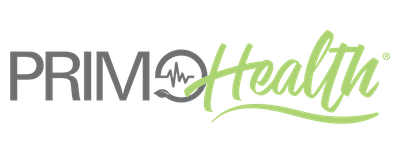
The Health Benefits Of Pastured Eggs
 No nutrient rich food I can think of has been given a worse reputation than chicken eggs. Well, maybe raw milk is getting the boot now, but eggs are right there with them. The poor chicken egg has been blamed for high cholesterol, high fat and bacterial poisoning. But this stigma is rightfully and hopefully disappearing while the truth about eggs prevails.
No nutrient rich food I can think of has been given a worse reputation than chicken eggs. Well, maybe raw milk is getting the boot now, but eggs are right there with them. The poor chicken egg has been blamed for high cholesterol, high fat and bacterial poisoning. But this stigma is rightfully and hopefully disappearing while the truth about eggs prevails.
Eggs are a storehouse of nutrients all contained in a built-in protective package. Unless you've chosen a vegan/vegetarian approach to food, I highly recommend incorporating eggs into healthy diet. But not just any eggs, as you will see below, but the highest quality eggs you can find. And let me explain why.
Eggs for Protein
Eggs are by far one of the best sources of protein on this earth. They are one of the most easily digested and highest quality proteins, scoring higher than beef, milk, whey and soy. The whites of the eggs contain all of the essential amino acids. Eggs are a very affordable protein accessible to most.
Don't Forget the Yolk
So what's all the hype about eggs being bad for you? Well, the yolk of the egg has cholesterol. And for a long time health advocates have encouraged those with high cholesterol to avoid eggs. However, many later studies have actually proven that eggs actually lower the risk of heart disease. (Article: Eggs and Heart Disease) We've also learned that dietary cholesterol has very little or no effect on blood cholesterol levels. Bad quality saturated fats are actually more to blame than cholesterol found in food. And nutrients in eggs like Vitamin B12, D, riboflavin and folate are actually heart protective. These studies have determined that 1-2 eggs a day are good for most people.
The yolk of the egg is plum full of nutrients. The yolk of the egg is one of the best sources of choline. Choline is an essential nutrient that must be consumed for heart and brain function. It is a key component in our cell walls. Choline as a component of phosphatidylcholine prevents fat and cholesterol from accumulating in the liver. The yolk is also a source of betaine. Betaine can reduce levels of homocysteine, which is known to damage arterial walls. Eggs are good for the heart!
Egg yolks are also home to two important carotenids - lutein and zeaxanthin. These eye protective nutrients are found in rich yellow yolks and are more bioavailable than those found in vegetables like spinach or even some supplements.
So What's a Bad Egg?
The best eggs by far are those from pasture raised chickens. Even just comparing yolks between commercially grown eggs and pastured eggs you can see a difference in the color. The pastured eggs are a richer deeper orange, which should signify a higher carotene content. You see chickens are omnivores like (most) humans. They eat bugs, worms, insects, as well as herbs, grass and seeds. Only pastured chickens are privy to this delicious diet. While the commercial chickens are forced to eat grains and pellets they would not normally eat, not to mention the horrendous conditions they are confined to.
 Happy chickens produce delicious nutritious eggs. Though pastured eggs may be more difficult to find and cost a couple more dollars a dozen, they are a far better nutrient dense version of their "competitor." Even omega-3 enriched eggs are unnecessary if the eggs are pastured. Chickens grazing in the grass will produce their own Omega-3 eggs.
Happy chickens produce delicious nutritious eggs. Though pastured eggs may be more difficult to find and cost a couple more dollars a dozen, they are a far better nutrient dense version of their "competitor." Even omega-3 enriched eggs are unnecessary if the eggs are pastured. Chickens grazing in the grass will produce their own Omega-3 eggs.
Being a Celiac, I am very sensitive to proteins. I almost always react to the eggs that I eat, except if they are from pasture raised chickens. I have proven this time and time again. Now I will ONLY eat those eggs from happy chickens. My niece raises her own egg laying hens and several local farms within minutes of my home sell them too. I'm not sure where my sensitivity to the other eggs come from. I've even wondered if being fed wheat or corn may affect the protein in the eggs. Regardless of the science behind it, my body can tell the difference even if I forget.
Proteins when heated are easily denatured, especially in eggs. I know I'm pushing it here with some of you, but raw eggs are the best way to get the full bang of protein. I like to add them to my smoothies occasionally. What about salmonella? A study published by the USDA found that only .03 percent of 69 billion eggs produced annually are actually contaminated. And that number goes down significantly in pastured eggs. Salmonella comes from sick birds raised in less than favorable dark and dirty quarters like many conventional eggs. But if raw eggs still don't float your boat, a nice poached egg or lightly scrambled egg will still suffice.
Heart disease is preventable with proper diet and lifestyle. Don't wait until it's too late. Take a moment and consult with a nutrition expert and learn to build a diet for life that will prevent illness and promote health!


